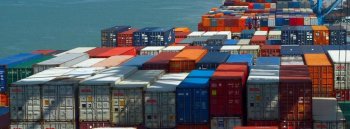
He says, “New Zealand is totally dependent on trading what we grow and make, so a tightening of the freedom to trade between nations will directly affect our prosperity. The first year of the TPP was predicted to have been worth nearly $30 million to horticulture alone. A lot of that money would have found its way back to New Zealand, so losing the opportunities presented by the TPP is not good for horticulture and New Zealand.”
Chapman suggests that the wider ramifications of this move by President Trump are of greater concern. “In trade, nations tend to follow each other; good examples of this are the Free Trade Agreements (FTAs) that are negotiated between countries. What one country gets, the other country also gets, or something similar that benefits that country. Tariff reductions, and removal of other barriers to free trade between the countries, are typically what happens in these agreements. The results spread to other countries as they want similar FTAs, and overall trade is freed up.”
The opposite, however, is also true, he adds. “When countries make it harder for other countries to trade with them, there is a reciprocal ripple effect, and that's the risk we face when the US makes it harder to trade with them.”
“The jury is out as to whether this will create more US jobs; paradoxically, it may be the start of economic decline. Cheaper offshore labour may have been the core issue in the past but in today's (and tomorrow's) worlds, I do not believe it is related to the decline of employment in the ‘hands-on’ areas such as manufacturing. Technology and robotics are taking away jobs once done by people, and changing how we grow and manufacture things. Jobs in the affluent and the developing nations are being replaced by technology, creating greater efficiencies and lower costs. Closing the borders to free trade will not change this trend.”
“I believe that what is needed is innovative and trend-setting policies that recognise the impact of technology and robotics, and ensure that all citizens of the world receive the economic benefits rather than being unemployed and living in abject poverty. My plea is to focus on the real issue and address it for the benefit of all people of the world.”
Source: HortNZ



 Classifieds
Classifieds

